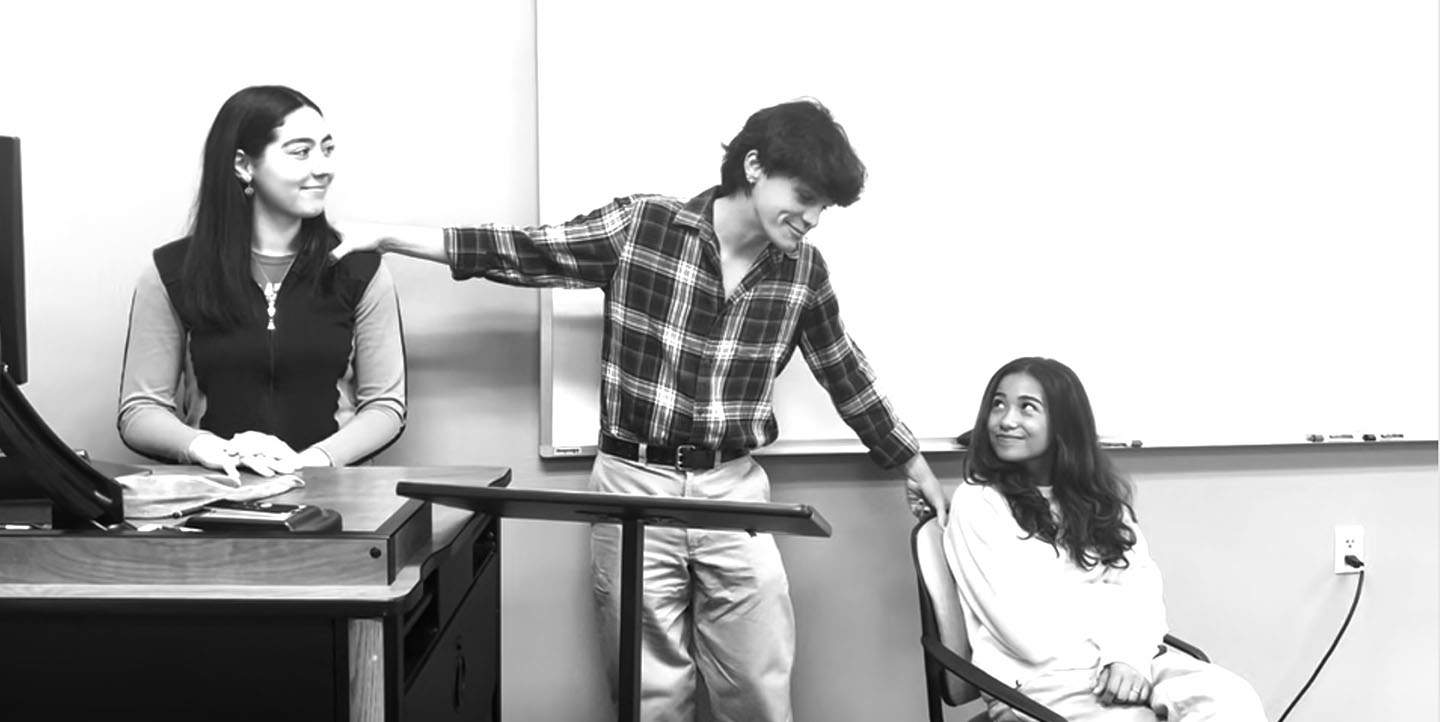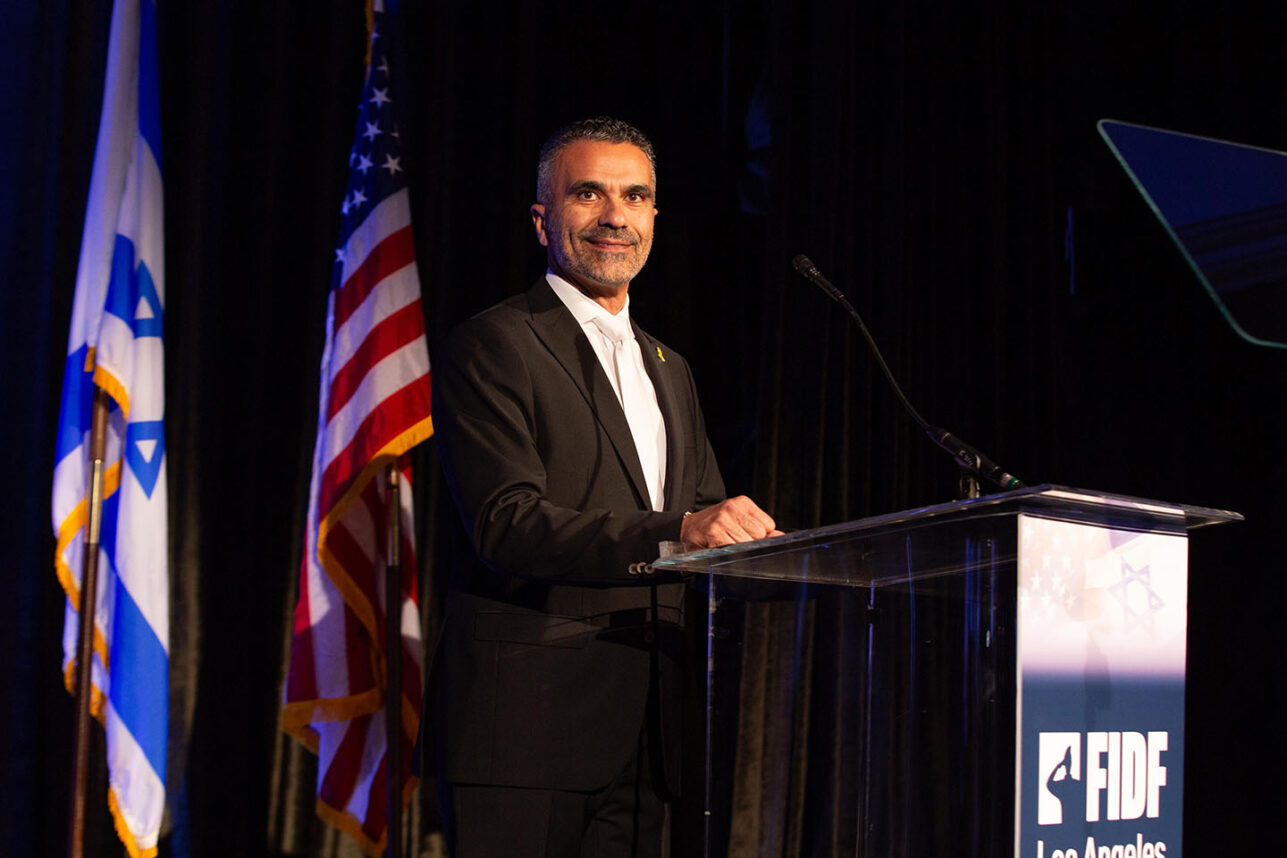Jewish refugees fortunate enough to make it into Switzerlandduring World War II, were, in most cases, interned in forced-laborcamps, required to perform hard physical labor under primitive livingconditions, and separated from their families.
By 1944, the Swiss had established about 100 such camps, manysurrounded by barbed wire, which held some 22,500 refugees, most ofwhom were Jewish.
The charges were presented Tuesday in a press conference by Dr.Alan Morris Schom, an American historian, who attributed in hisjust-completed report the harsh treatment of Jews to “a pattern ofconsistent anti-Semitism” by Swiss officials.
Schom’s report, “The Unwanted Guests: Swiss Forced Labor Camps,1940-1944,” was prepared for and presented at the Simon WiesenthalCenter.
In his report and presentation, Schom identified 62 camps by nameand added the following charges:
* Men up to 60 were forced to work on road gangs and in forestswith shovels and pickaxes, from dawn to dusk, in summer and winter.
* Women and girls were assigned to institutions and privateresidences to perform the most menial labors.
* Camp commandants separated men from their wives, and mothersfrom even infant children.
* Recalcitrant refugees were sent to one of two special”punishment” camps or taken to the border and handed over to FrenchVichy police or German officials.
Throughout the war, Schom said, Switzerland maintained a two-trackpolicy for Jewish and Christian refugees. While the Swiss governmentprovided for Christians, the small Swiss Jewish community andAmerican Jewish relief organizations were required to pay the entirecost of maintaining Jewish refugees.
In addition, a special “Jew tax” was imposed on all wealthy Jewishrefugees, who also had to divulge full information on any bankaccount they might hold.
Schom also charged that throughout the Hitler era, the presidentof the Geneva-based International Red Cross, Dr. Max Huber, profitedfrom arms sales to Italy and Germany and owned a manufacturing plantin southern Germany run by the SS and employing slave labor.
In a letter to Swiss President Flavio Cotti that accompanied thereport, the Wiesenthal Center’s Rabbi Marvin Hier asked that thetreatment of Jewish refugees be investigated by the BergierCommission of eminent historians.
If the charges are validated, Hier said, Switzerland should offerapologies and compensation to former camp inmates. Hier alsoemphasized that the forced-labor camps, though harsh, could not becompared to Nazi concentration camps, and that many individual Swisscitizens sought to succor the refugees.
Schom received a doctorate in history but is not affiliated withany academic institution. He lives in France and has written fourbooks, put out by respected publishing houses, on aspects of Frenchand British history.
In a brief interview, Schom said that he had talked to one formerSwiss camp commandant but had received no cooperation from otherSwiss officials. The historian said that he had been in contact withthree German Jews, now living in London, who had been interned by theSwiss, and he had researched recently declassified British wartimedocuments.
“As a historian, I fit together bits and pieces until I find apattern,” he said.
In Switzerland, meanwhile, a government spokeswoman, MarieMarceline Kurman, said that the Schom study was littered withhistorical inaccuracies and that the existence of work camps forrefugees has long been documented by Swiss historians.
Of various former camp inmates interviewed by The AssociatedPress, some praised their treatment by the Swiss, while otherscomplained of harsh conditions and anti-Semitic incidents.
However, some of Schom’s charges were endorsed by an unscheduledwitness. Annette Glazman, herself a wartime Belgian refugee inSwitzerland, testified that her first husband had been interned in aSwiss camp, where “he was treated like a slave,” and where mothersand children were separated.
“The Swiss were very anti-Semitic, and they treated people asbadly as they could,” the 77-year-old Glazman, a Camarillo resident,said. “We knew exactly when Germany began to lose the war, becausethe Swiss attitude toward us changed radically.”
During daylong sessions at the Wiesenthal Center, state InsuranceCommissioner Chuck Quackenbush took testimony from six witnesses whoaccused European insurance companies, particularly in Italy andGermany, of failing to make good on policies taken out by parents andrelatives.
Quackenbush warned the only insurance company representativepresent at the hearing that he and commissioners of other stateswould use their regulatory power over American subsidiaries of theEuropean companies to see “that justice is done.”
At another session, a Belgian and a Russian art expert relatedtheir labyrinthine efforts to track down art and literary workslooted by the Nazis.
For instance, Jacques Lust of the Royal Museum of Fine Arts inBrussels told of finding a rare book in Amsterdam in 1996 that hadbeen originally confiscated by the Nazis from a wealthy Belgian Jew.In tracing the book’s journey over 50 years, he found that it hadchanged owners in Berlin, Silesia, Minsk, Moscow and Amsterdam.






















 More news and opinions than at a Shabbat dinner, right in your inbox.
More news and opinions than at a Shabbat dinner, right in your inbox.